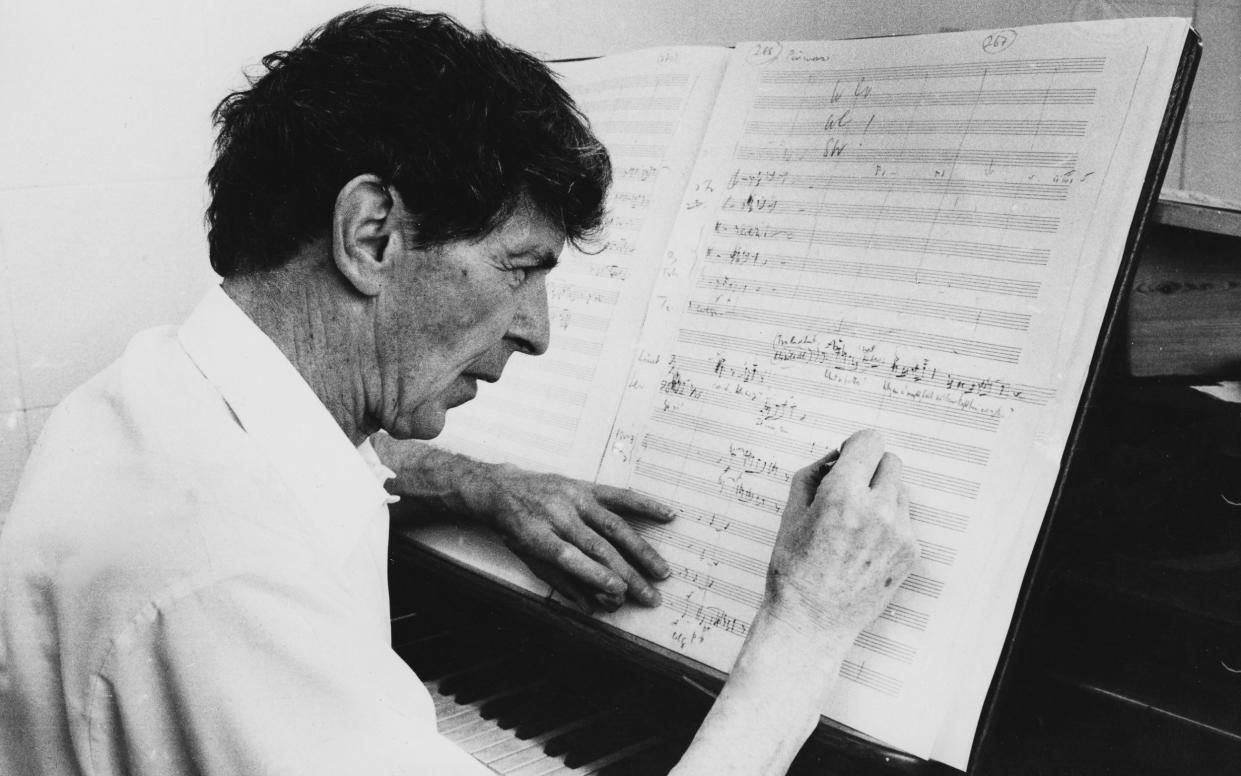The Midsummer Marriage feels like a Magic Flute, clad in English myth. Bring on the Tippett revival!

- Oops!Something went wrong.Please try again later.
- Oops!Something went wrong.Please try again later.
It was both a shrewd and an inspired choice for the London Philharmonic to open its first season under its new principal conductor Edward Gardner with this concert performance of Michael Tippett’s opera The Midsummer Marriage. Tippett’s music has been neglected since his death in 1998, his quirky operas struggling in the repertory against the success of Benjamin Britten’s human dramas. Now is the moment for a revival.
The Midsummer Marriage, first performed in 1955, is a wholly individual and visionary tale of a search for identity among a dense forest of symbolism, and contains some of the most powerful music of the postwar era, brilliantly imagined. This is a music-drama in which the orchestra plays a dominating role alongside the singers, featuring the Ritual Dances which have become famous as a showpiece for orchestra alone, and so is ideal for a concert performance.
Gardner, a conductor steeped in opera who has just won a Gramophone award for his recording of Britten’s Peter Grimes, is the right person to immerse us again in the dazzling sonorities of Tippett’s score. With generous numbers of players and singers on the Royal Festival Hall stage, a cast of leading British singers, and the chorus from English National Opera, the clarity and attention to detail were riveting.
But what’s it all about? Tippett’s own libretto has been repeatedly criticised for its complexity and obscurity, but the outline of the plot is blissfully simple, as expressed by the composer’s biographer Oliver Soden: “Two couples meet in a magic wood. Over the longest day and the shortest night of the year, they find each other, and find themselves, by sunrise.”
Here the journey of Mozart’s Magic Flute is clothed in the world of dense English myth. The high-flown couple Mark and Jenifer (the soaring voices of Robert Murray and Rachel Nicholls) are set off against the mechanic Jack and secretary Bella (crisply articulated by Toby Spence and Jennifer France). The dominating presence, physically and vocally, is the fine Ashley Riches as King Fisher, while on the sidelines the Ancients (the firm-voiced Joshua Bloom and Susan Bickley) comment sagely, with Claire Barnett-Jones as the ominous clairvoyante Sosostris.
You cannot really understand the libretto without the score, because, as the critic David Cairns perfectly put it, “we find that the music has taken possession of the text.” Dancing baroque woodwind (Juliette Bausor the first flute), chiming, fanfaring brass (Paul Beniston the excellent first trumpet) and rhapsodic strings combine in an ecstatically sensual version of English pastoral. The chorus asks its question: “Was it a vision? Was it a dream?”, and the orchestra evaporates into silence. A superb ensemble performance and a thrilling experience.
On BBC Sounds until Monday October 25. The LPO season continues at the South Bank; lpo.org.uk

